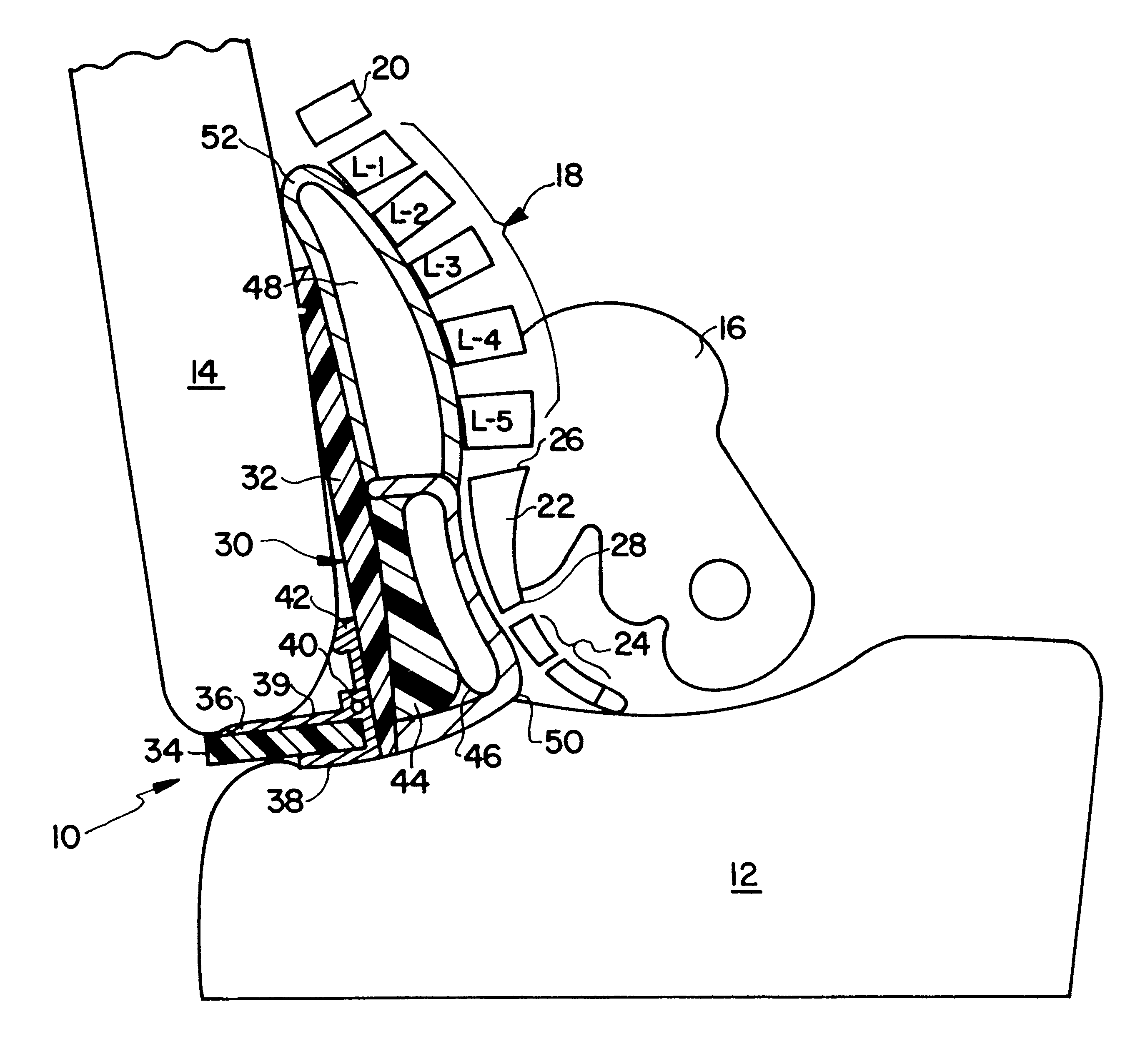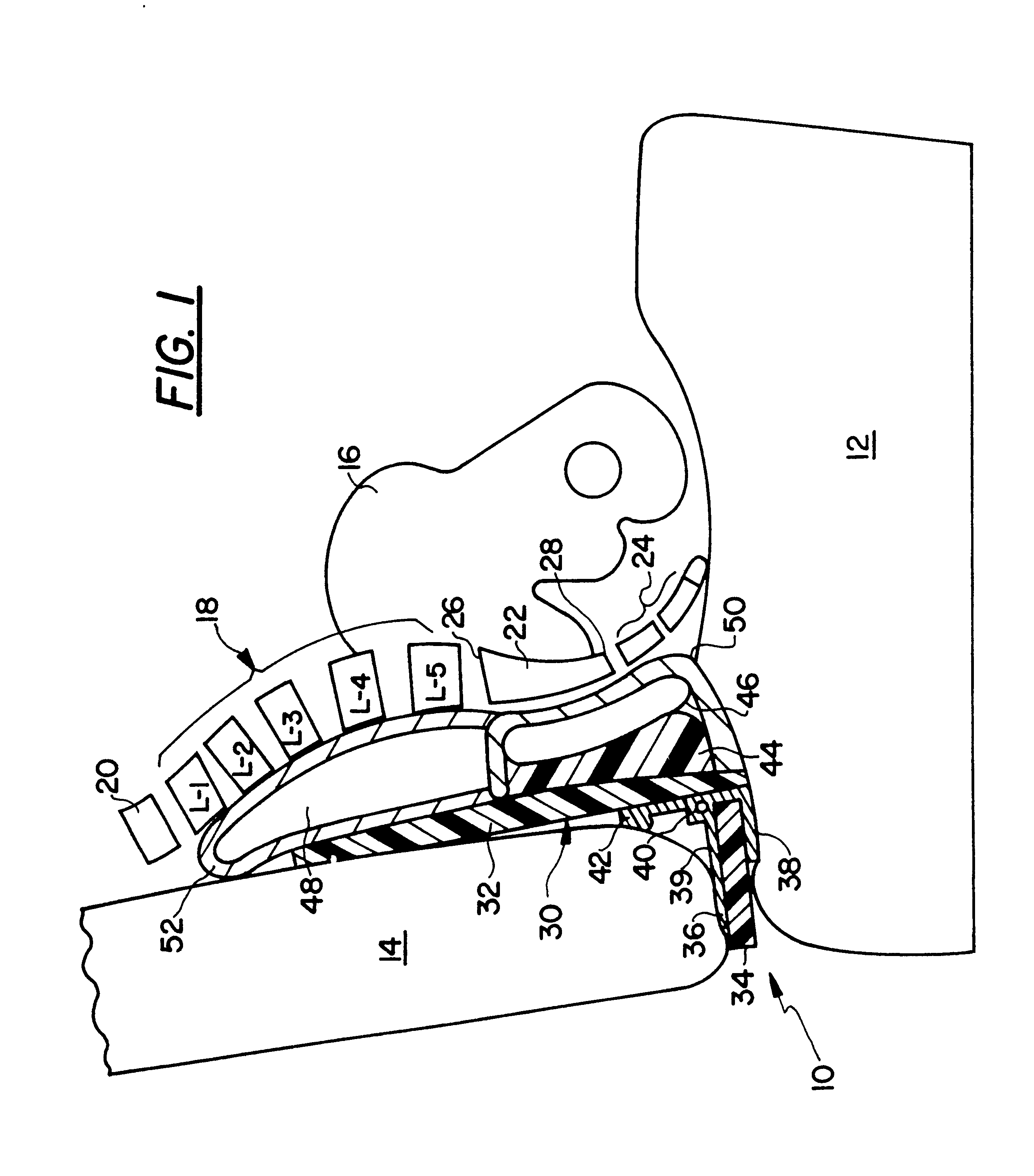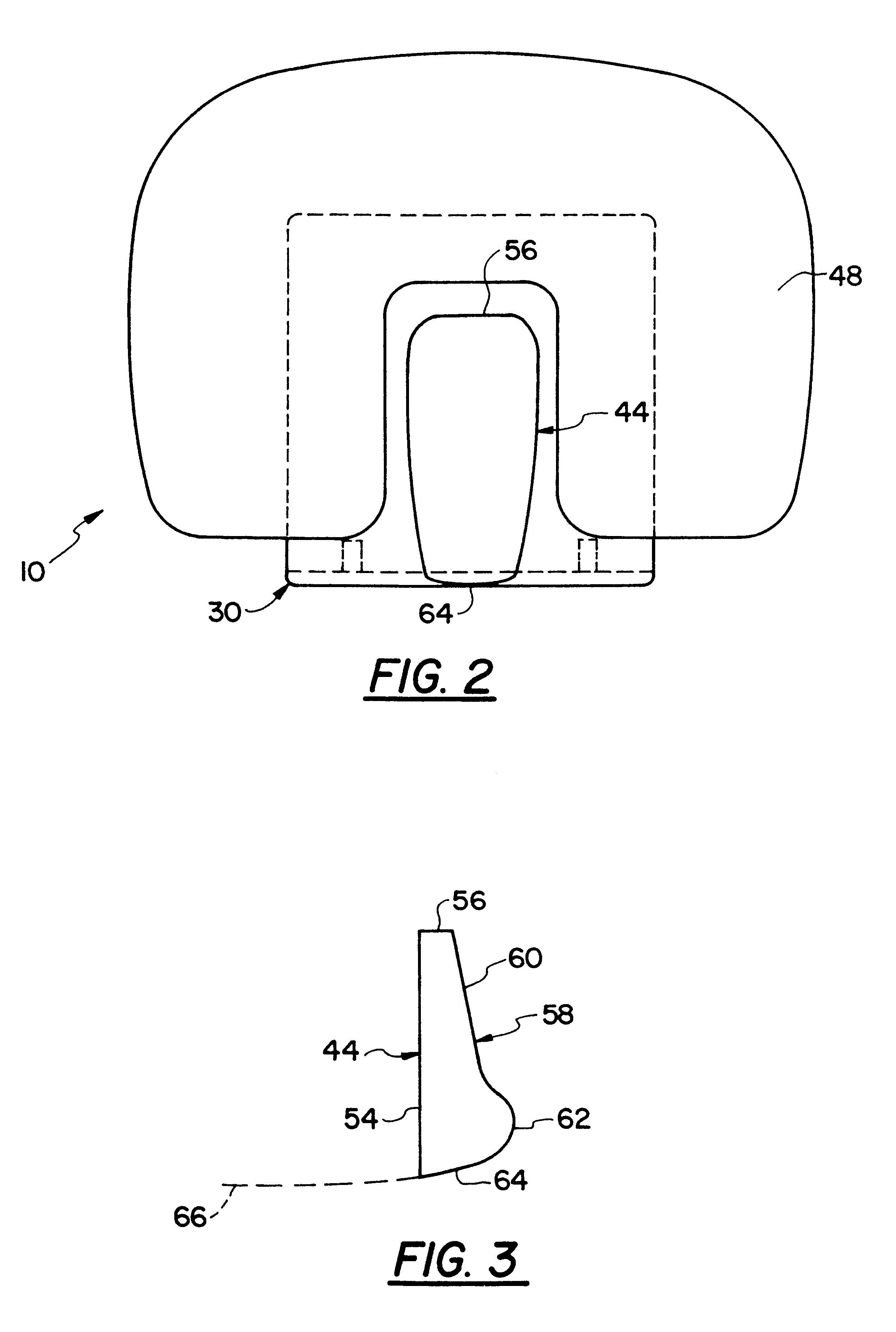Spinal support system for seating
a spine support and seating technology, applied in the direction of chairs, wheelchairs/patient conveyances, bandages, etc., can solve the problems of inability to provide uniform resistance to the meares device, few cures, and back pain
- Summary
- Abstract
- Description
- Claims
- Application Information
AI Technical Summary
Benefits of technology
Problems solved by technology
Method used
Image
Examples
Embodiment Construction
With reference to FIG. 1, one embodiment of the present invention is shown in cross-section, and generally indicated at 10. The device 10 is shown being used between a bottom seat 12 and a seat back 14, with only portions of the seat structure being shown.
In order to correlate the present invention and its effect on the anatomical components of a person's body, FIG. 1 includes the pelvis 16, the five lumbar vertebrae, generally indicated at 18, with the vertebras specifically referenced as L1-L5, respectively. A first and lowermost thoracic vertebrae is shown at 20. The sacrum is shown at 22 and the upper one third is the region or area called the sacral base. Below sacrum 22 is the coccyx 24, which is comprised of a series of smaller bones that, as a group, tend to curve in an anterior direction. In older adults the smaller coccyx bones can actually fuse together and are considered to be a part of the sacrum.
As noted, the sacrum 22 includes a sacral base or baseline at the top one ...
PUM
 Login to View More
Login to View More Abstract
Description
Claims
Application Information
 Login to View More
Login to View More - R&D
- Intellectual Property
- Life Sciences
- Materials
- Tech Scout
- Unparalleled Data Quality
- Higher Quality Content
- 60% Fewer Hallucinations
Browse by: Latest US Patents, China's latest patents, Technical Efficacy Thesaurus, Application Domain, Technology Topic, Popular Technical Reports.
© 2025 PatSnap. All rights reserved.Legal|Privacy policy|Modern Slavery Act Transparency Statement|Sitemap|About US| Contact US: help@patsnap.com



